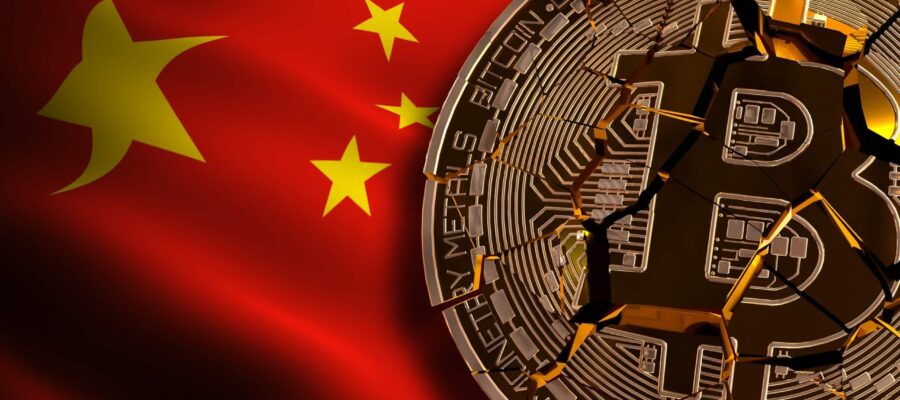According to internal documents obtained by some reporters, Binance concealed its significant links to China for several years, despite executives claiming that the crypto exchange had left the country after a regulatory crackdown in 2017.
The company’s CEO and other high-ranking officials directed Binance employees to keep the Chinese presence of the company hidden, including an office that was in use until at least the end of 2019 and a Chinese bank used to pay employee salaries.
In November 2017, Zhao, who is the CEO of Binance, instructed his team in a company messaging group to stop publishing office addresses, saying that people in China should be told that the office is not located in the country.
It is clear from these internal documents that Binance went to great lengths to conceal its connections to China, despite the potential risks and legal implications.
What Did the Documents Reveal?
The recently obtained documents reveal the extent to which Binance, now the world’s largest crypto exchange, has gone to obscure the location and scope of its operations as regulators continue to scrutinize crypto-related activity.
While Zhao has claimed that the majority of Binance’s employees left China after the government’s crackdown on crypto in 2017, the internal documents contradict these statements.
Recently, US regulators sued Binance, accusing the company of illegally servicing American clients. The Commodity Futures Trading Commission alleged that Binance intentionally withheld the location of its executive offices.
In late 2019, Binance employees discussed a media report that suggested the company was opening an office in Beijing.
One message cautioned against confirming the existence of any offices outside of Uganda, Singapore, and Malta as publicly disclosed locations.
These internal documents demonstrate that Binance has repeatedly taken active measures to conceal its Chinese presence, raising concerns about the company’s transparency and compliance with regulations.
How Did Binance Respond?
In response to the allegations, Binance issued a statement denying that the reports accurately reflect the company’s operations.
Zhao has also denied that Binance is a Chinese company, stating that the founding team members, who were Shanghai based had departed China just two months after the company was organized.
Despite these claims, the documents obtained by the reporters raise questions about the extent to which Binance has sought to obscure the location and scope of its operations.
In response to the recent lawsuit filed against it by the Commodity Futures Trading Commission, Binance issued a statement claiming that anonymous sources are citing ancient history and mischaracterizing events.
Binance also stated that it has never been registered or incorporated in China. Meanwhile, Binance’s American affiliate is facing scrutiny from the CFIUS over its proposed $1 billion purchase of assets from Voyager Digital.
For those who may not know, CFIUS is a U.S based bankrupt crypto lender. This is a government agency responsible for determining if overseas investments pose national security risks.
One former official from the CFIUS noted that the US is currently engaged in a critical geopolitical contest and expressed concern over any deal that could be traced back to China.
Although Binance US claims to be operationally independent of its parent company, it licenses its technology, and its ultimate beneficial owner is Zhao himself.
Internal company documents reveal that Binance has gone to great lengths to obscure the extent and location of its operations, even after China cracked down on crypto in 2017.
For example, in 2018, employees were informed that their wages would be paid through a bank in Shanghai, and in 2019, those on the payroll in China were asked to attend a tax session in a Chinese office.
Despite Binance’s claims to the contrary, these documents suggest that China has remained an important part of its operations.
Final Thoughts
While a lot about Binance still remains in the air, the latest revelations do no favors for the crypto exchange. Needless to say, it will be interesting to see how this will shape the crypto sphere in the future.
All trademarks, logos, and images displayed on this site belong to their respective owners and have been utilized under the Fair Use Act. The materials on this site should not be interpreted as financial advice. When we incorporate content from other sites, we ensure each author receives proper attribution by providing a link to the original content. This site might maintain financial affiliations with a selection of the brands and firms mentioned herein. As a result, we may receive compensation if our readers opt to click on these links within our content and subsequently register for the products or services on offer. However, we neither represent nor endorse these services, brands, or companies. Therefore, any disputes that may arise with the mentioned brands or companies need to be directly addressed with the respective parties involved. We urge our readers to exercise their own judgement when clicking on links within our content and ultimately signing up for any products or services. The responsibility lies solely with them. Please read our full disclaimer and terms of use policy here.

